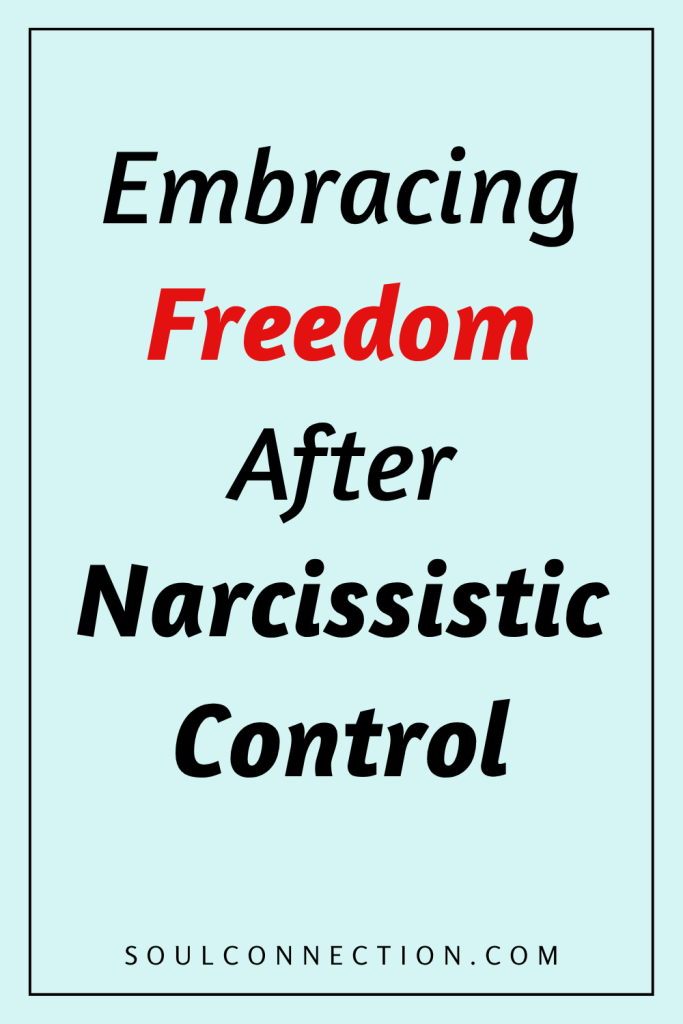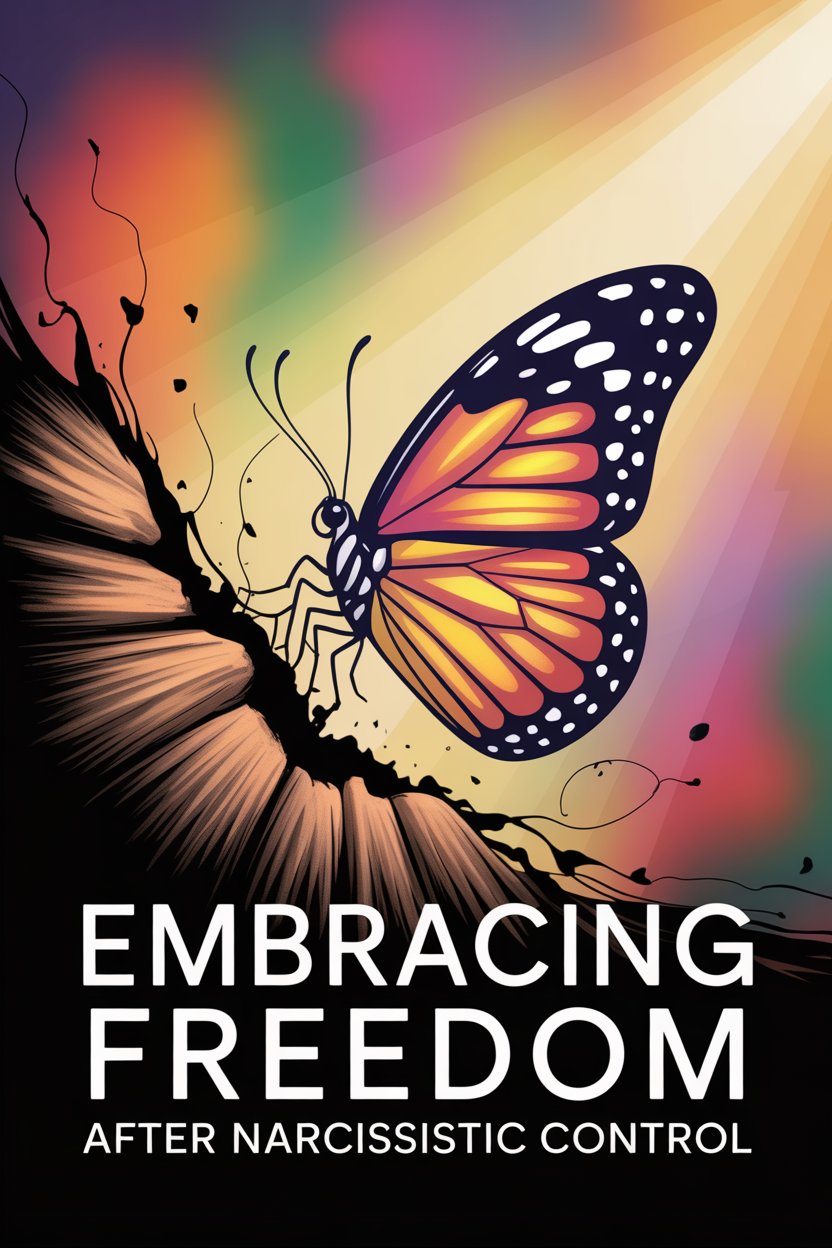Blink twice if you’re reading this and have recently extracted yourself from the sticky web of a narcissist’s control. If your eyelids just got an impromptu workout, welcome—you’re not alone, and you’re definitely not imagining things.
Escaping narcissistic control is not just a plot point in a Lifetime movie; it’s a messy, real-life transition that can feel like learning to walk again after years in emotional quicksand.
Congratulations on getting out. Now, what in the world are you supposed to do with all this terrifying, exhilarating, unfamiliar freedom?
Turns out, there’s a lot you can do, and none of it has to involve second-guessing yourself for the rest of eternity.
Unpacking the Baggage Without Checking It Back In
Leaving a narcissist isn’t like stepping out of a haunted house and into the sunshine, shaking off the cobwebs, and calling it a day.
It’s more like emerging from a haunted house with a ghost still clinging to your leg and a suitcase full of “maybe I’m the problem?” thoughts.
Narcissistic control warps your sense of reality. Gaslighting isn’t just a buzzword—it’s a full-body experience.
When someone has spent years subtly (or not so subtly) convincing you that your instincts are faulty, your feelings are “too much,” and your needs are an inconvenience, it’s only natural you’ll carry some of those doubts with you.
Processing the fallout is a marathon, not a sprint. Therapists and support groups are worth their weight in gold. Journaling isn’t just for angsty teens—get your feelings onto paper, even if it’s just a furious grocery list of grievances.
Every time you put your experience into words, the fog lifts a little more.
Creating Your Own Reality Show (Minus the Drama)
Guess what happens when someone’s no longer editing your personality like a bad TV producer? You get to rediscover who you actually are. Your likes, dislikes, quirks, and opinions—remember those?
Start small. Choose your own music for once. Order your food the way you want it, without trying to preempt someone else’s criticism. You might be surprised how many tiny choices were influenced by the narcissist’s preferences.
This is the fun part. Wear what you want, even if it’s socks with pineapples on them. Watch that strange documentary no one else ever wanted to see. Take up a hobby that always got dismissed as “pointless.”
Every time you make a decision for yourself, you reclaim a piece of your personality.
Rewiring the Self-Doubt Circuit Board
Here’s the thing about narcissists: they’re masterful at planting seeds of doubt and watering them like prize-winning begonias.
If you find yourself wondering whether your every action is “wrong,” that’s not some deep personal flaw. That’s programming.
Shaking off this script takes practice. The next time you catch yourself apologizing for something innocent, pause. Ask yourself: “Is this actually my fault, or am I just running on autopilot?”
Self-compassion is not optional here. Some days will feel like progress; others, you’ll want to crawl under the duvet and eat biscuits. Both are normal.
The important part is learning to trust your gut again—even if it’s been temporarily replaced by static.
Setting Boundaries Like a Seasoned Bouncer
Boundaries are not optional, they’re essential. If you spent a long time with a narcissist, boundaries probably felt like imaginary lines—drawn and erased at someone else’s whim.
Now’s the time to draw them in permanent marker. This isn’t about becoming cold or unapproachable; it’s about protecting your time, energy, and sanity.
“No,” is a complete sentence. It doesn’t need a PowerPoint presentation of justifications.
Practice saying no to small things—a pointless phone call, an invitation you’d rather skip, a request for a favor that would drain your last ounce of goodwill. Every “no” is a brick in the wall that keeps out the nonsense.
Trusting People Again Without Turning Into a Hermit
It’s tempting to swear off humanity for a while after dealing with a master manipulator. Who could blame you? The world can feel full of walking red flags.
But isolation is the narcissist’s favorite after-effect, and you deserve better than the echo chamber of your own anxieties.
Start with low-risk connections: old friends, a new book club, or the neighbor with the wonky garden gnome. Not everyone is out to take advantage of you, promise.
Listen to your instincts, but recognize the difference between healthy caution and chronic suspicion. If someone’s treating you kindly, let yourself believe it might be genuine.
Relationships can be messy, but they’re also what keep us tethered to reality.
Relearning What Love Isn’t
Narcissistic control comes with a warped definition of love. If you’ve been told that love looks like control, criticism, or conditional acceptance, you’re not alone.
Healthy love isn’t a rollercoaster of silent treatments and grand gestures followed by cold withdrawal. It’s not about keeping score or walking on eggshells.
Instead, it’s gentle, consistent, and sometimes kind of boring in the best way. If the idea of someone treating you with basic respect and care feels revolutionary, congratulations—you’ve spotted the difference.
New relationships may trigger old fears. You might panic when someone doesn’t text back immediately or feel suspicious when someone gives you a compliment.
That’s old programming, not a prophecy. Take things at your own pace, and don’t be afraid to communicate your needs.
Redefining Success Without an Audience
Narcissists are famous for hijacking your goals. Whether they downplayed your achievements or made everything about their success, your real ambitions may have gotten lost in the noise.
This is the time to ask: “What do I actually want?” If success used to mean making them happy, it’s time to trade that in for something more sustainable.
Maybe that means advancing your career, or it could mean nailing the perfect loaf of banana bread.
No one’s watching. No one’s scoring you. You get to decide what counts as an achievement now, big or small.
Celebrating Small Wins Like a Champ
Freedom after narcissistic control rarely arrives with a parade. The world doesn’t pause to give you a gold medal for turning your life right-side up. That’s why celebrating your own victories is crucial.
Got through a whole day without doubting yourself? That’s worth a toast—tea or tequila, your call. Managed to say what you want out loud, even if your voice trembled? Huge.
Every step away from the old patterns deserves a bit of fanfare.
Develop a habit of recognizing your wins. Write them down, share them with friends, or just mentally high-five yourself. It all counts.
Owning Your Story Without the Shame
Guilt and shame are the narcissist’s luggage—they’ll try to leave it behind for you to lug around. The truth is, getting trapped by a narcissist doesn’t make you foolish or weak; it makes you human.
These folks are experts at deception, and their manipulation is an art form.
Talking about your experiences can feel scary. Start with the people you trust, and notice how many say, “Me too.”
Your story isn’t a cautionary tale; it’s evidence of resilience. Every time you own it, you take a little more power back.
The Beauty of Boring and the Joy of Ordinary
A life unburdened by narcissistic chaos can feel… weirdly quiet. Where’s the drama? The daily crisis? The constant emotional juggling?
Here’s the surprise: boring is underrated. Peaceful is the new thrilling. Waking up and not bracing yourself for the next explosion is its own kind of euphoria.
Give yourself permission to enjoy the mundane. Laundry, slow walks, a coffee with a friend—ordinary things become radical acts of self-care after years of turmoil.
Moving Forward With Your Own Map
Freedom after narcissistic control is not about erasing your past. It’s about rewriting your future one choice at a time.
There will be days when triggers flare up, or self-doubt creeps in. There will also be days when you notice you’re laughing again, even at your own terrible jokes.
Progress isn’t a straight line. It’s a wobbly walk through a park where someone’s hidden the map and the squirrels are eyeing your snacks. But the path is yours now—no one else gets to dictate your destination.
You’re not just surviving. You’re living, choosing, and—sometimes—thriving.
And if you ever forget that, just look at how far you’ve come since the days when someone else held the remote control to your life.
That, right there, is freedom.


